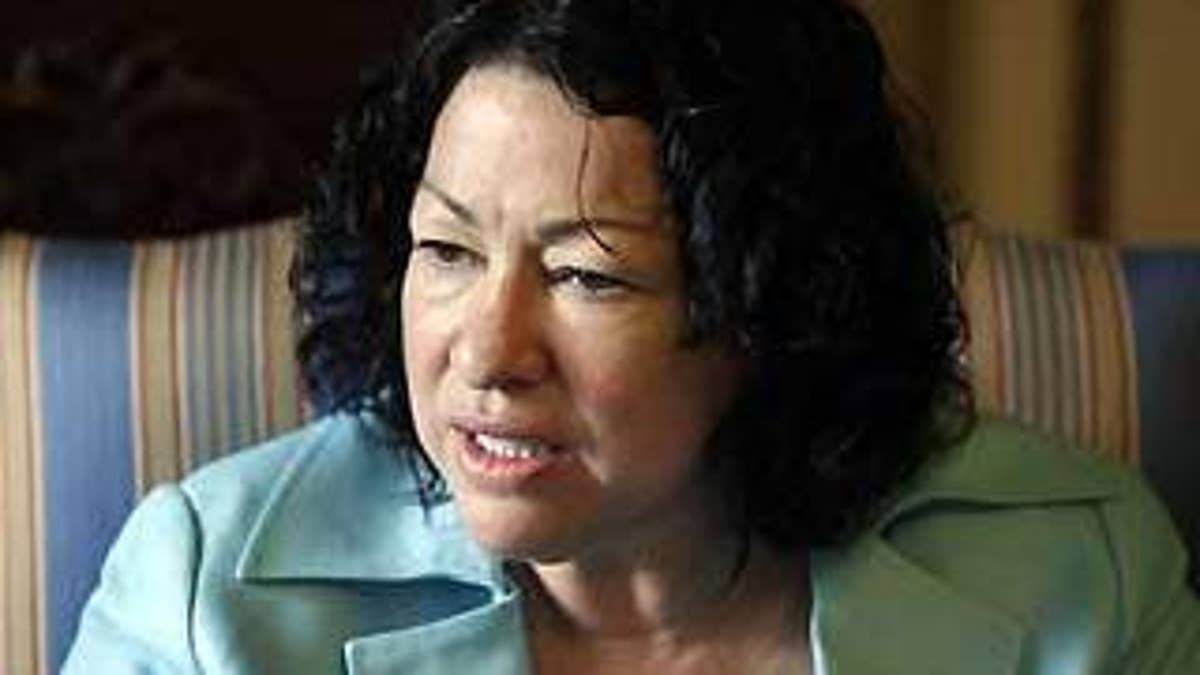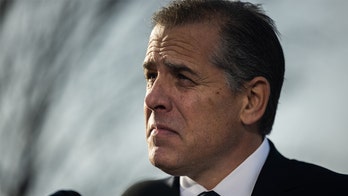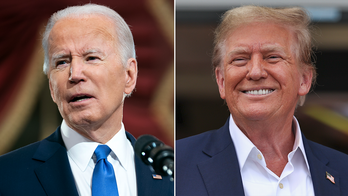
Barring a shocking revelation or disastrous performance before the Senate Judiciary Committee next week, Sonia Sotomayor's confirmation as the next Supreme Court justice would appear to be a foregone conclusion.
But Republican and Democratic members of the Judiciary Committee and their staff members are nonetheless reviewing thousands of pages of opinions, speeches and other documents related to President Obama's high court selection, all in preparation for her hearing, which begins Monday.
"It will be a learning experience for the American people," said Sen. John Kyl, R-Ariz., about the broader implication of the hearing.
He said he believes anyone watching the confirmation hearing will be able to assess the merits of the president's selection and, through Sotomayor, pass judgment on Obama's larger view of the role of the judiciary. However, Kyl said Republicans are not of a mind to filibuster the nomination.
Sotomayor's legal views will likely be the dominant theme of Republican questioning, particularly since Republicans don't share Obama's judicial philosophy.
"I don't think I look for the same qualities in a judge that the person who nominated her does," said Sen. Jeff Sessions, R-Ala., Republican leader on the Senate Judiciary Committee. "He says he wants someone who will use empathy -- empathy to certain groups to decide cases. That may sound nice, but empathy toward one is prejudice toward the other, is it not?"
No committee member of either party has unequivocally stated how he or she will vote, though Chairman Patrick Leahy, D-Vt., has made his support for Sotomayor abundantly clear, and it is widely expected that all of his fellow Democrats will vote for the New Yorker.
If she passes muster with the committee, Sotomayor's nomination goes to the full Senate for final consideration. A simple majority vote -- 51 senators -- will put Sotomayor on the high court.
Sen. Claire McCaskill, D-Mo., sent a confident Twitter message on Wednesday that few of her colleagues are likely to dispute: "I support her and so will most of the Senate."
Even though he says "she is a liberal judge," Republican Sen. John Cornyn, a former Texas Supreme Court judge, insists he has not made up his mind about how he will vote on Sotomayor.
He said he thinks the hearing can influence other senators' views -- even those who have already reached a conclusion.
"It has a capability to change their minds," he said.
Three Republicans have said they will vote against Sotomayor, presuming her nomination is moved through the committee. Sen. James Inhofe, R-Okla., bluntly says he voted against Sotomayor in 1998 when she was approved for her current job as an appellate judge, and he sees no reason to change his position now.
Inhofe's assuredness is complemented by his concern that fellow Republicans will give Sotomayor a pass despite concerns over her record.
"I think most Republicans are afraid to vote against a woman or Hispanic," Inhofe said. "And she's both."
Sotomayor's nomination has drawn support from numerous special interest groups who have praised the selection because, among other reasons, she is the daughter of Puerto Rican parents.
"Her compelling background, extraordinary intellect, commendable credentials and principled jurisprudence make her a worthy successor to retiring Justice David H. Souter," said Ramona Romero, President of the Hispanic National Bar Association.
Since Sotomayor was introduced on May 26, her comments about being a "wise Latina" -- made in multiple speeches in recent years -- have drawn significant attention.
Those comments and a handful of other issues will be examined, including her rulings on gun rights and workplace discrimination, as highlighted by the much-publicized case involving Connecticut firefighters. Frank Ricci, a lead plaintiff in that case, will testify at the confirmation hearing as a witness for Republicans.
Sotomayor's work as a board member of the Puerto Rican Legal Defense and Education Fund has also been criticized. Committee Republicans have scowled in recent days over what they perceive to be foot-dragging by the New York-based civil rights organization and the White House in releasing documents from Sotomayor's tenure at PRLDEF throughout the 1980s.
Sessions has appeared on the Senate floor several times in recent weeks to question Sotomayor's record, including her work for PRLDEF, which he calls "clearly outside the mainstream of the American approach."
On Tuesday, Leahy said Sotomayor's work for the organization, which ended in 1992 when she became a federal trial judge, was not a legitimate area for dispute.
"They can raise the concerns if they want," Leahy said. "This is a mainstream civil rights organization."
If the hearing follows the schedule established by the committee, Monday will feature opening statements by the senators and Sotomayor.
She will be officially presented by her home state senators, Chuck Schumer and Kirsten Gillibrand, both Democrats. The next two days will likely spark the most interest, with questions and answers.
Thursday is slotted for testimony from witnesses invited by Leahy and Sessions.




